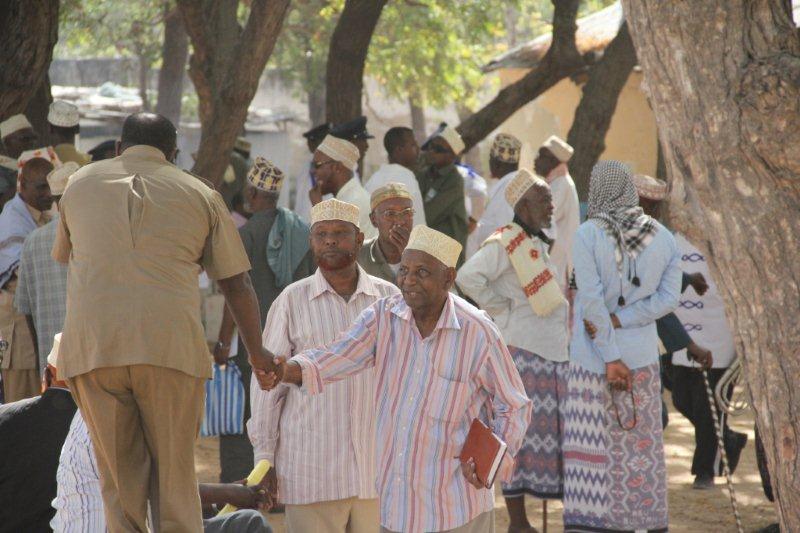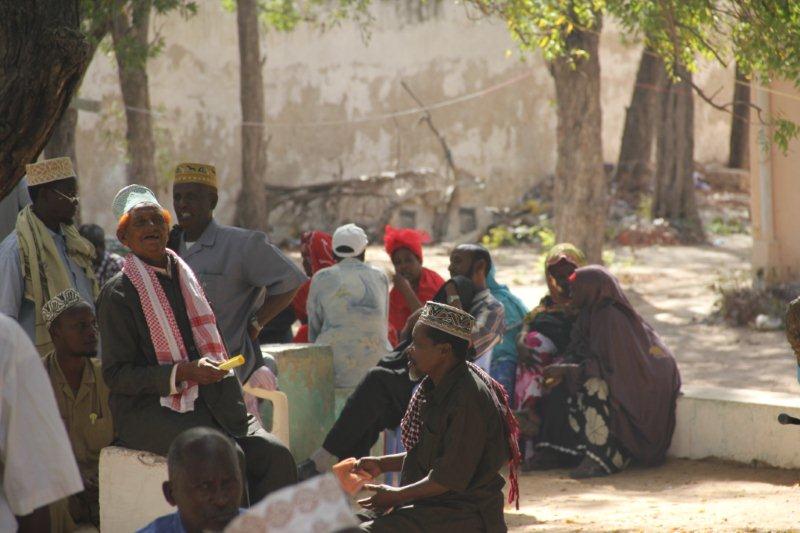Peace in South-Central Somalia: Consolidating the gains

The Elders are a keystone across Somali society. South Central Somalia is no exception. But this traditional structure has been stressed over the last two decades due to the violence and civil war, questions of legitimacy, and no contact with central government.
Accommodating the new dynamics
But the dynamics are changing from within. The Elders in the south are now looking to seize the new opportunity to consolidate peace and security. “Good and just leadership is the only option for the society to overcome the scars that the last decades of conflict have left behind, and lay the foundations to meet the new expectations of the communities living in these areas. The biggest challenge now is to provide a framework that the leadership can use to initiate reconciliation processes, and establish a functioning administration and institutions,” explains Jabril Abdulle, Director of Interpeace local partner, Centre for Research and Dialogue (CRD).
300 Elders get involved
On Saturday, 10th March, 300 Elders joined the Ministry of Interior and CRD to take part in a two day workshop focused on reenergizing their roles at the community, regional and national levels. As they look to harness the positive and dynamic change that are now taking place, they are considering how best to adapt their style of governance to the new realities. They gathered for this two day session to validate the latest research data collected by CRD that was conducted to capture voices on the issues of governance, statebuilding, peace and the challenges they face.
The event was opened by the Deputy Prime Minister, Minister of Agriculture, and was closed on Sunday evening by the Acting Minister of Interior and National Security.
 Photo credit: CRD/Interpeace |
A historic milestone on the path to a peaceful future
With high expectations from all involved, the meeting was deemed a success and a significant step towards lasting peace. Jabril, commenting on the energy and dynamism of the meeting, stated: “It was historic. It was the first time the Elders had been reached out to since the early 1990s. The positive reaction, and respect all round, enabled discussions to flow, issues to be tackled and formerly taboo subjects brought into the open.”
“The dynamics of the society are changing rapidly, with sectors of society, that include women, becoming more involved. This is one of the challenges the Elders are considering how best to take on board,” confirms Sabhita Raju, Interpeace Senior Programme Officer who attended the two days.
Lasting peace must come from within
“This initiative is part of a genuine process to firefight any emerging conflicts by mobilizing communities for positive, peaceful change. By building on over a decade of on the ground experience we know that by turning to traditional structures in the society, long term solutions for peace can come from within,” concludes Abdirahman Raghe, Interpeace Director of the Somali Programme. He adds: “The Elders challenge is to now demonstrate the benefits of peace quickly by providing access to basic infrastructures and services, stability and spaces for dialogue and reconciliation.”
